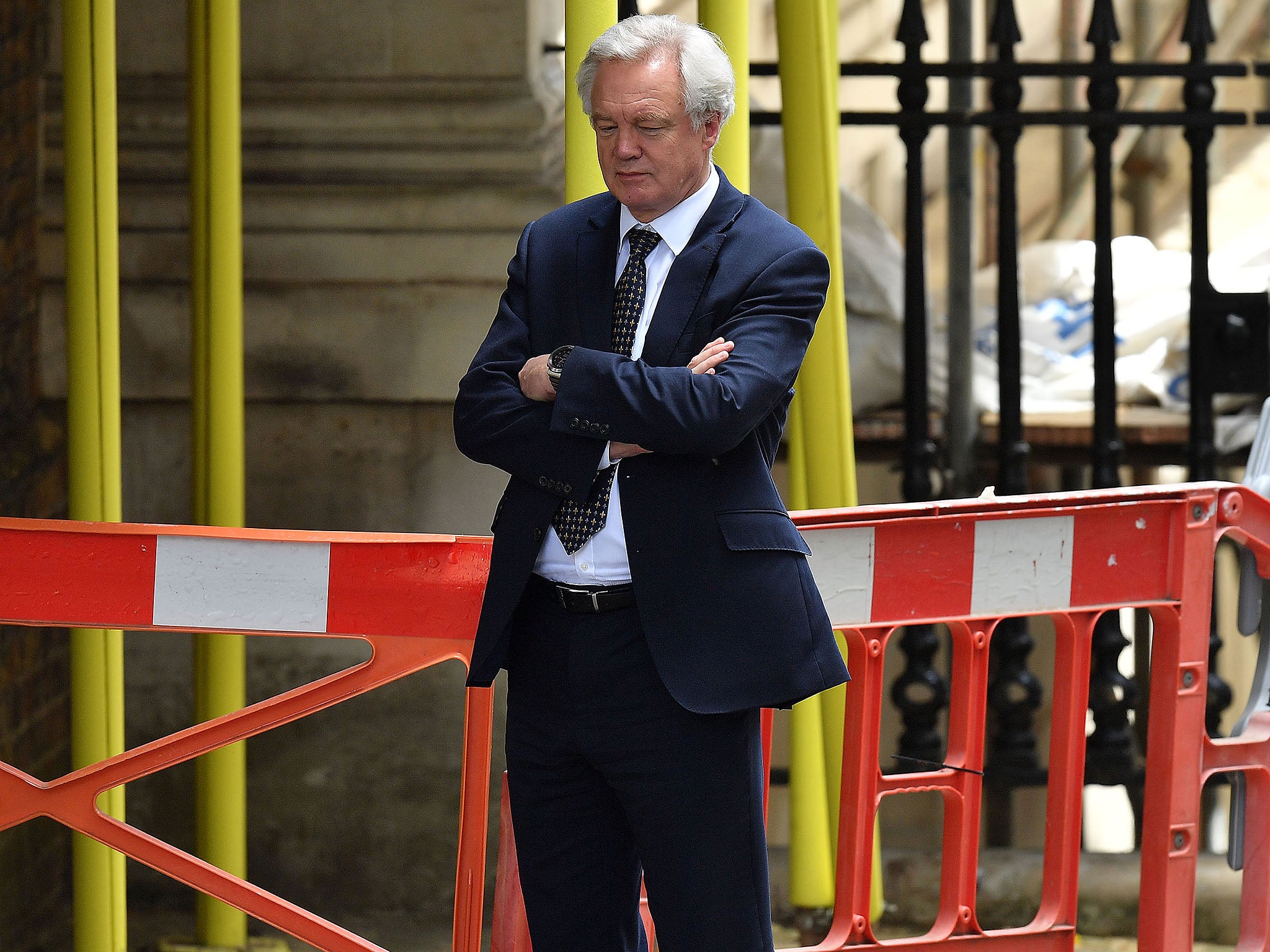MPs to get vote on new Brexit bill as Government caves in to Tory rebels
But asked if the UK would still withdraw if Parliament rejected any deal, David Davis replied: “Yes.”

David Davis has caved in to demands for MPs to vote on a separate bill to implement any Brexit agreement, to head off a major Tory revolt.
The Brexit Secretary said the legislation would cover the issues of citizens’ rights, the financial settlement and any implementation period – or transitional deal – agreed.
It would allow MPs to examine any Brexit agreement “line-by-line”, Mr Davis acknowledged, which means – crucially – that it could be amended.
Labour immediately welcomed a “recognition by the Government that it is about to lose a series of votes” on the Commons floor.
However, Mr Davis – asked if the UK would still leave the EU if Parliament rejected the Brexit deal – replied: “Yes.”
“It’s a meaningful vote but it’s not meaningful in the sense that you can reverse the whole decision,” he said, delivering a statement.
And he rejected a call, by pro-Remain Tory Anna Soubry, for MPs to vote if Britain is heading for a “no deal Brexit”, replying: “If we don’t have an agreement, we can’t have a withdrawal agreement bill.”
Ten Conservative MPs had signed an amendment insisting the promised “meaningful vote” had to take the form of standalone legislation, threatening the Government with possible defeat.
However, Theresa May has repeatedly insisted MPs will not be able to block Brexit, because rejecting any deal would mean leaving with “no deal”.
Although the concession was welcomed, MPs of all parties immediately criticised Mr Davis for not going far enough.
Under questioning, he admitted there was no guarantee the bill would come before Brexit day, in March 2019, describing that only as “our principal policy aim”.
And he rejected a call from Dominic Grieve, the former Attorney General, for the two-year Article 50 talks to be extended, if “we run out of time”.
Heidi Allen, another Tory rebel, tweeted that a fresh bill would be “pointless” if MPs also back the Prime Minister’s plan to put the exact date and time of withdrawal in legislation.
“Pointless if we have enshrined a drop dead date in the bill, & get a deal at 11th hour! There’d be no time!” she said.
Keir Starmer, Labour’s Brexit spokesman, said: “This is a significant climbdown from a weak government on the verge of defeat.”
But he added: “Ministers must now go further. They need to accept Labour’s amendments that would ensure transitional arrangements, and protect jobs and the economy from a cliff edge.”
Tom Brake, for the Liberal Democrats, said a true meaningful vote was still not on offer and the people should have the final say in a further referendum, adding: “If they reject the Government’s Brexit deal, they must have the option to stay in the EU.”
But Mr Davis did agree that any amendments made by MPs would be treated by the Government as an “instruction to go back” and seek a better deal.
The Government had already conceded a vote at the end of the process, but suggested it would be on any future trading agreement, as well as the exit deal.
Now a new Withdrawal Agreement and Implementation bill will give MPs a say on the exit terms and the opportunity to send the Government to seek better ones.
Despite the Government’s insistence that the only other option is to crash out with no deal, the political reality – probably in a year’s time – may dictate otherwise.
It is very possible that a outright rejection by the Commons of the Government’s 18-month effort to deliver Brexit could trigger its collapse and an attempt to delay withdrawal, under a new prime minister.
The climbdown came ahead of the first two days of detailed debate on the EU Withdrawal bill, which will paste Brussels law onto the UK state book, before parts are junked later.
Clashes will come over attempts to stop the UK leaving the EU customs union, the single market and European Court of Justice jurisdiction.
Labour and some Tories also want Clause 9 to be removed, which would still give ministers “Henry VIII powers” to implement a Brexit deal while bypassing Parliament.
Earlier, Mr Grieve branded the plan to fix the date of the EU withdrawal in domestic law as “incoherent and thoroughly stupid” because it would tie the Government’s hands.
The stance, echoed by other pro-EU Tories, raises the prospect that the Prime Minister could yet be defeated on that controversy.
Join our commenting forum
Join thought-provoking conversations, follow other Independent readers and see their replies
Comments
Bookmark popover
Removed from bookmarks